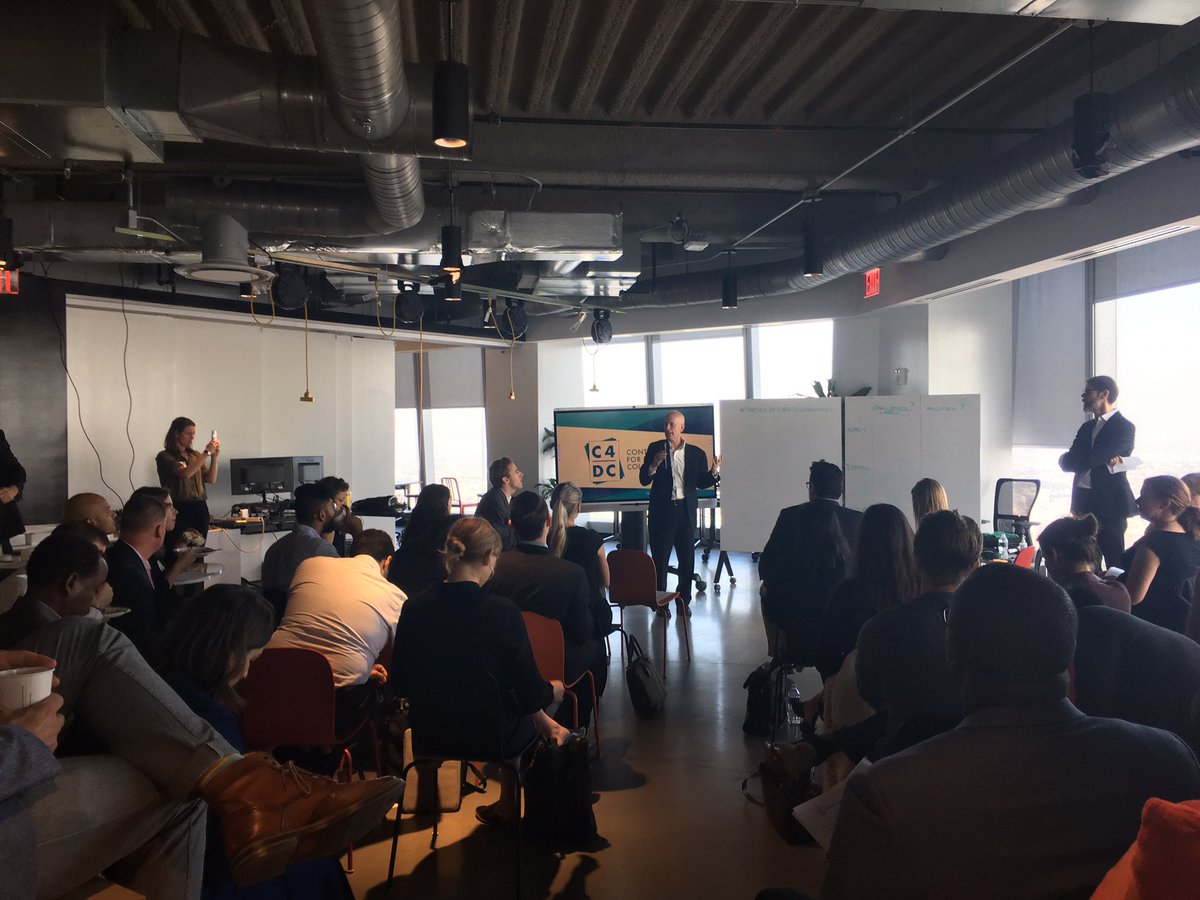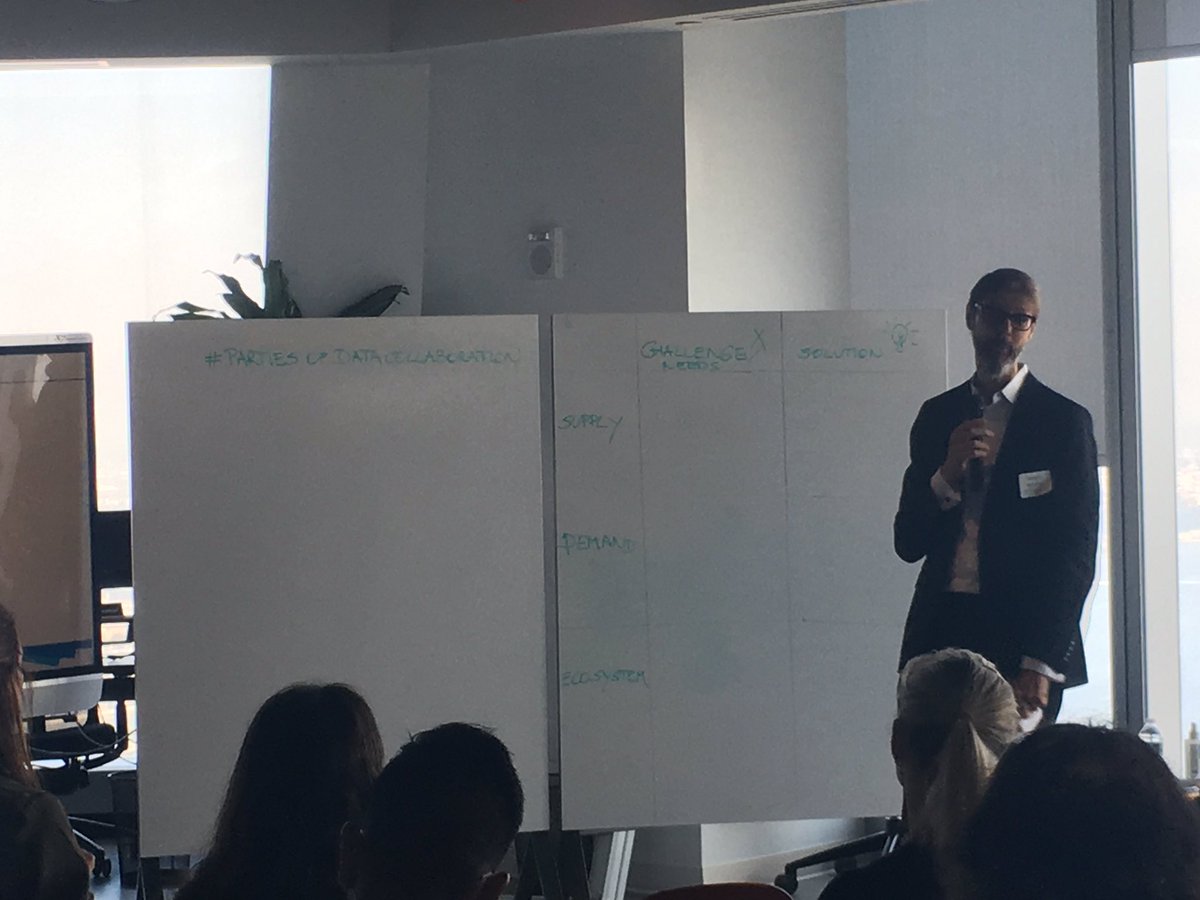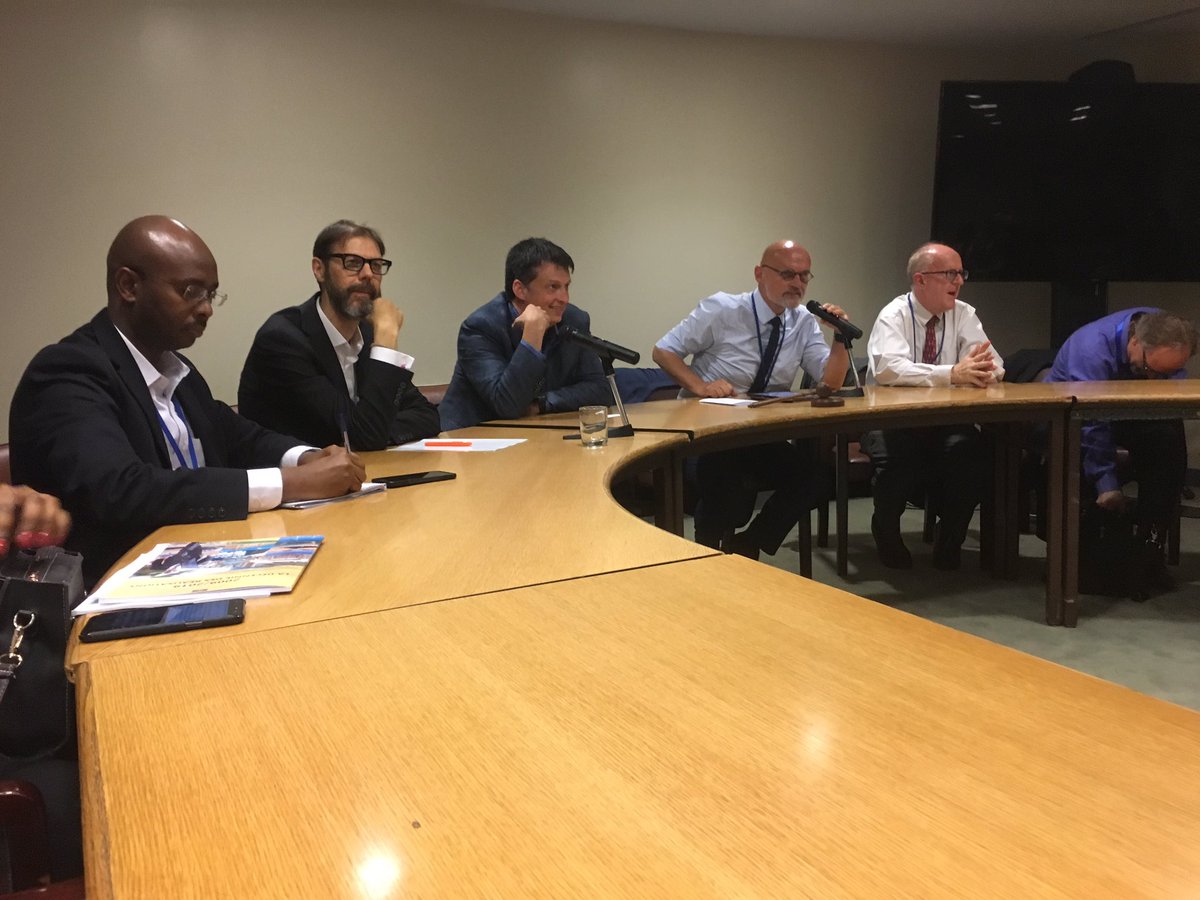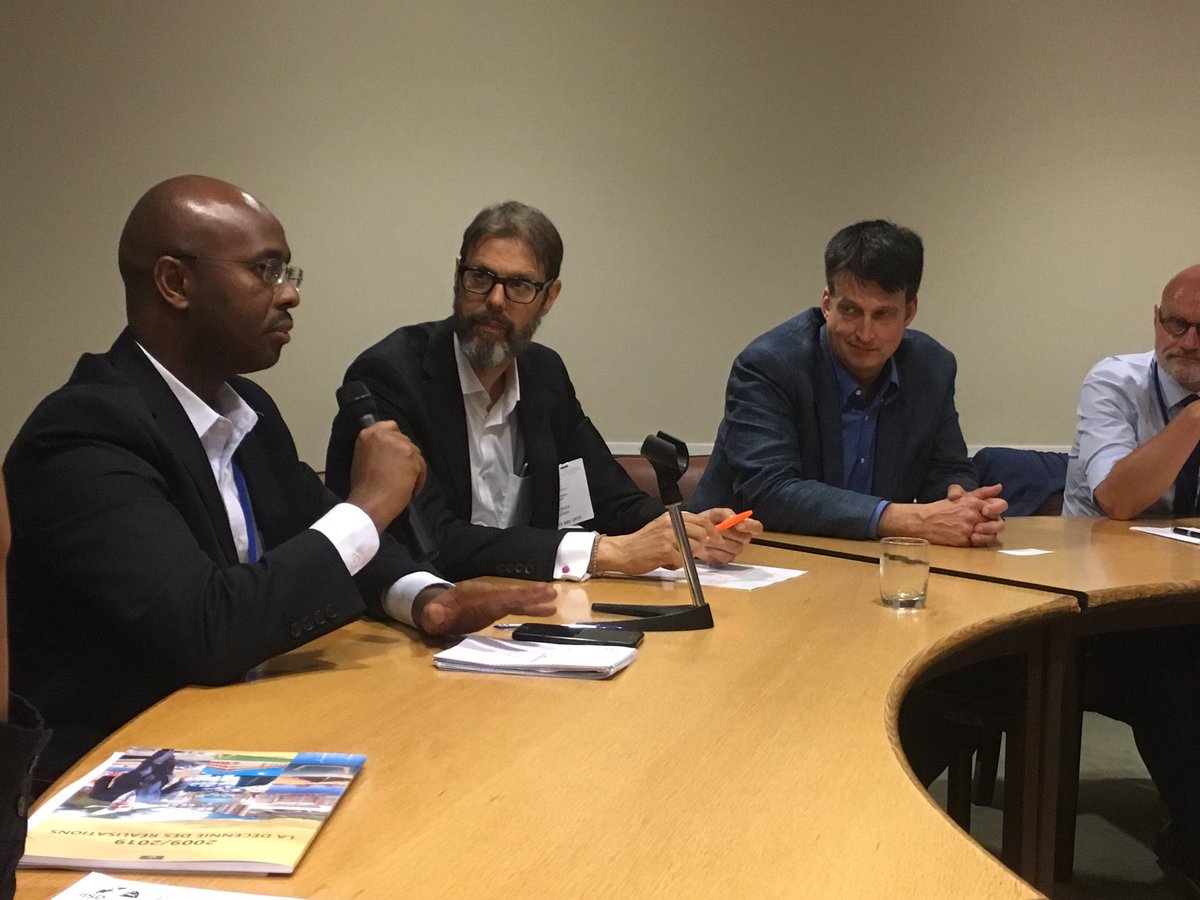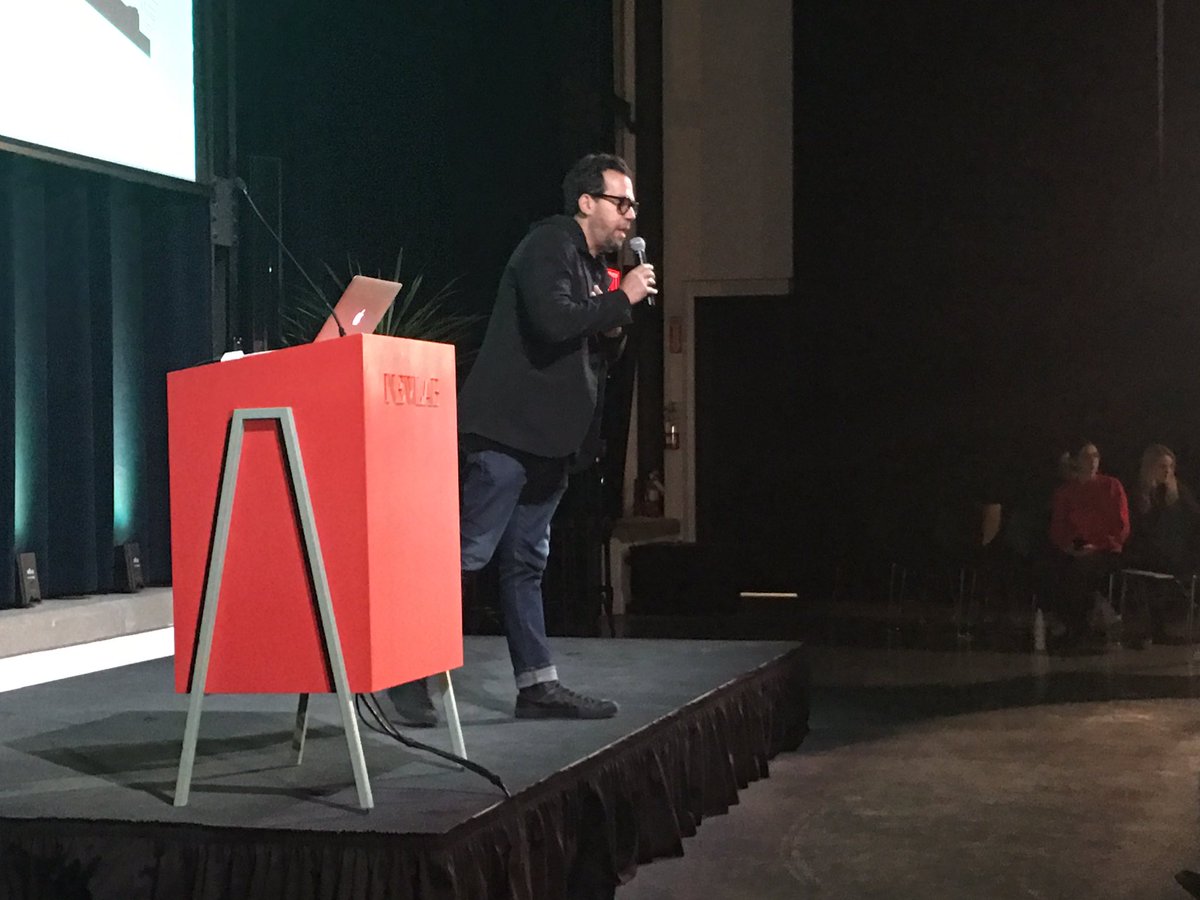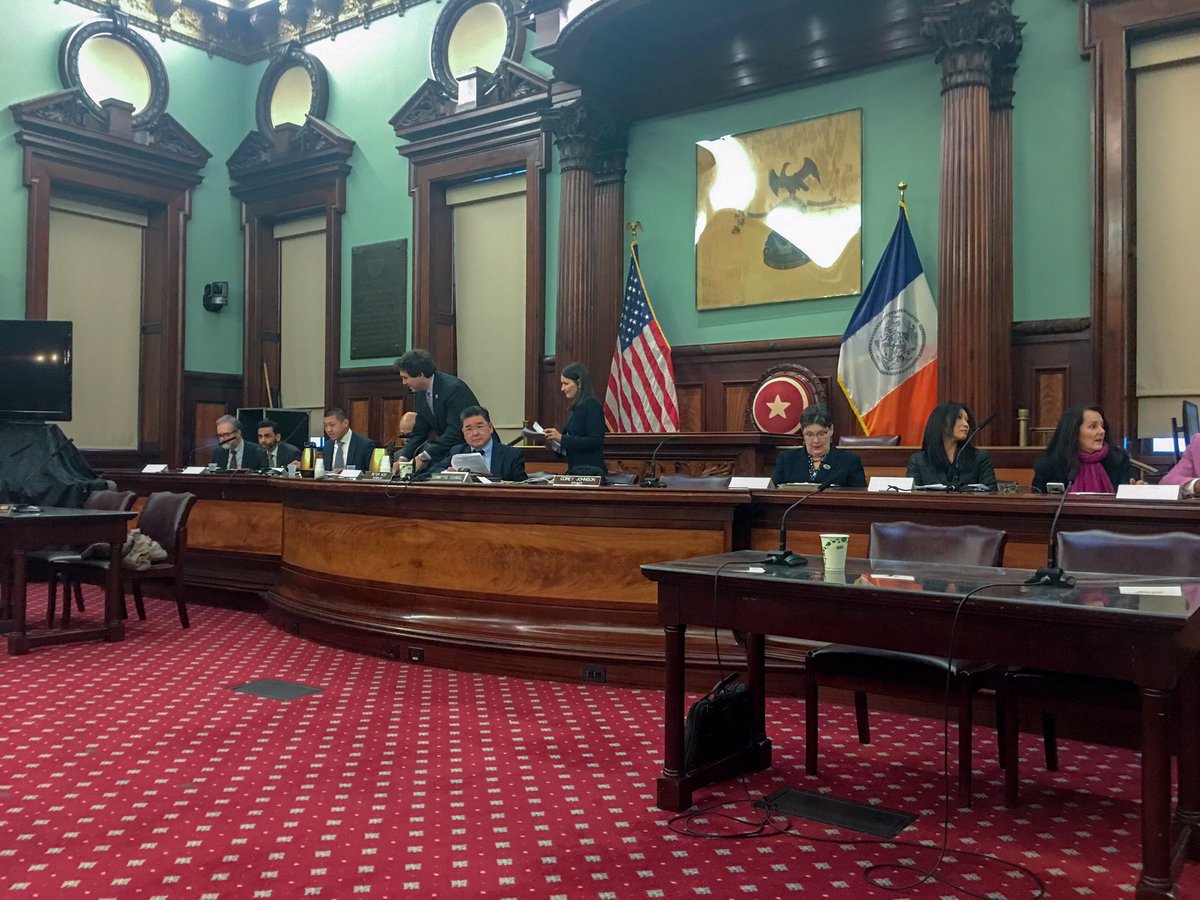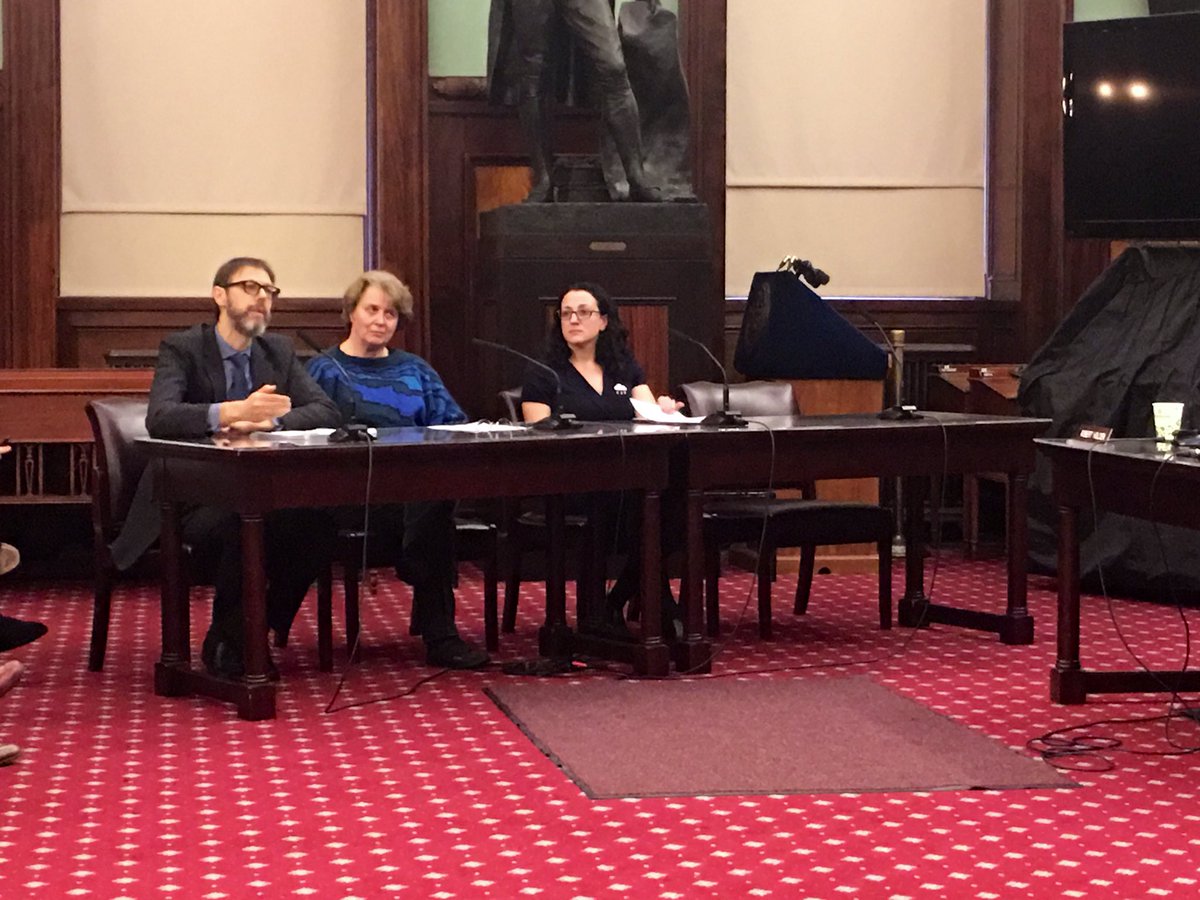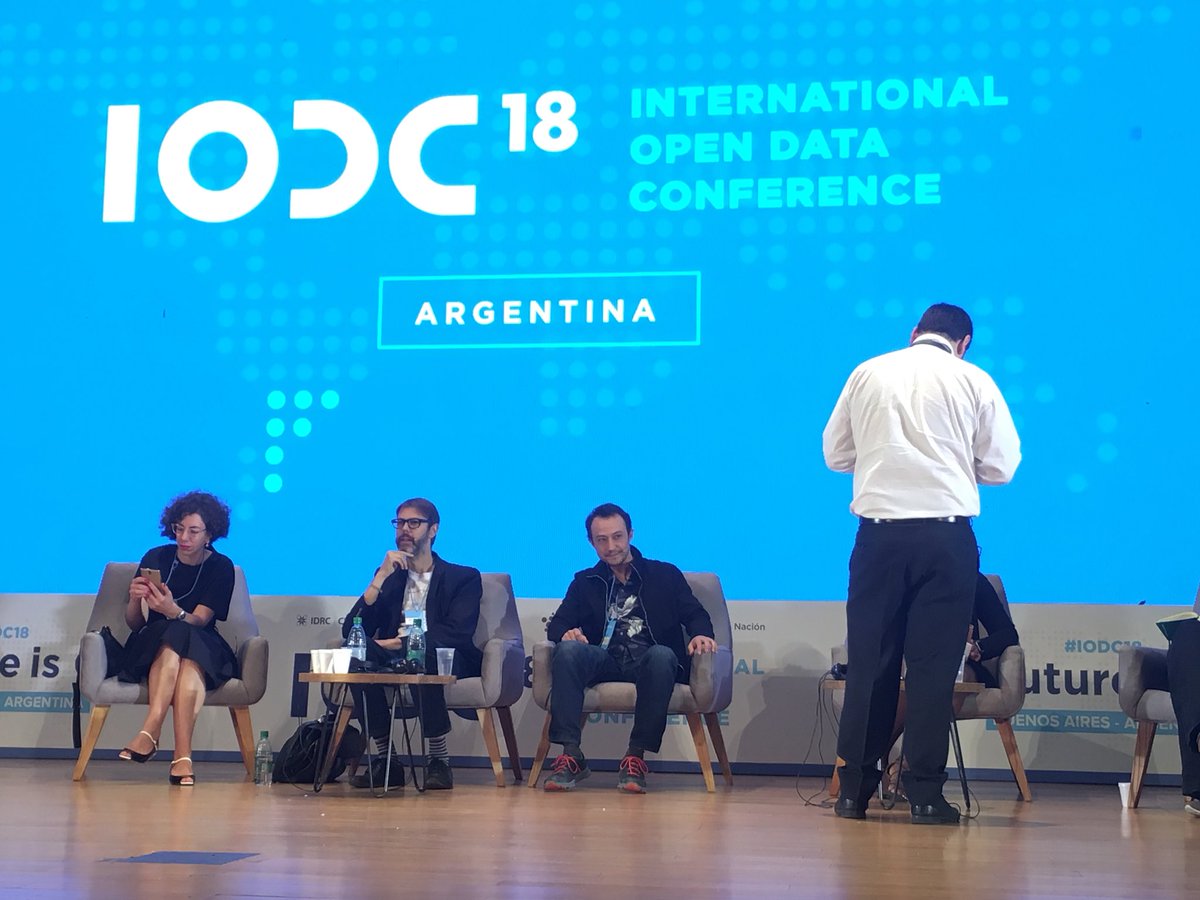
And, we're starting this afternoon's Expert Panel and Virtual Town Hall on #DataResponsibility and #COVID19 in #NYC! For those unable to join, you can follow along with this Twitter thread or learn more about the effort at thedataassembly.org. 

The GovLab's Stefaan Verhulst opens the panel with an introduction to the panel and town hall.
Noting that the #COVID19 pandemic has had enormous human, economic, and social costs, he describes the potential of #data reuse to help decisionmakers, so long as used responsibly
Noting that the #COVID19 pandemic has had enormous human, economic, and social costs, he describes the potential of #data reuse to help decisionmakers, so long as used responsibly

The Data Assembly "is an attempt to pioneer a new methodology [...] to try and understand what are expectations and concerns and proposals about how data should be used" around COVID-19 and other crises. 

There have been three previous mini-publics with:
1. Data holders and policy makers
2. Civil society and civil rights organizations
3. A randomly selected group of New York residents
1. Data holders and policy makers
2. Civil society and civil rights organizations
3. A randomly selected group of New York residents
In describing the discussions, Stefaan notes, "We didn't only solicit expectations and opinions. We also asked many stakeholders about what you believe the conditions and procedures that need to be in place to enable [responsible] reuse."
This has informed a framework for reuse.
This has informed a framework for reuse.

Andrew Young describes the framework, derived from previous discussions, and how its individual elements can help support more responsible and legitimate #data reuse.
They also yielded more cross-cutting recommendations.
They also yielded more cross-cutting recommendations.
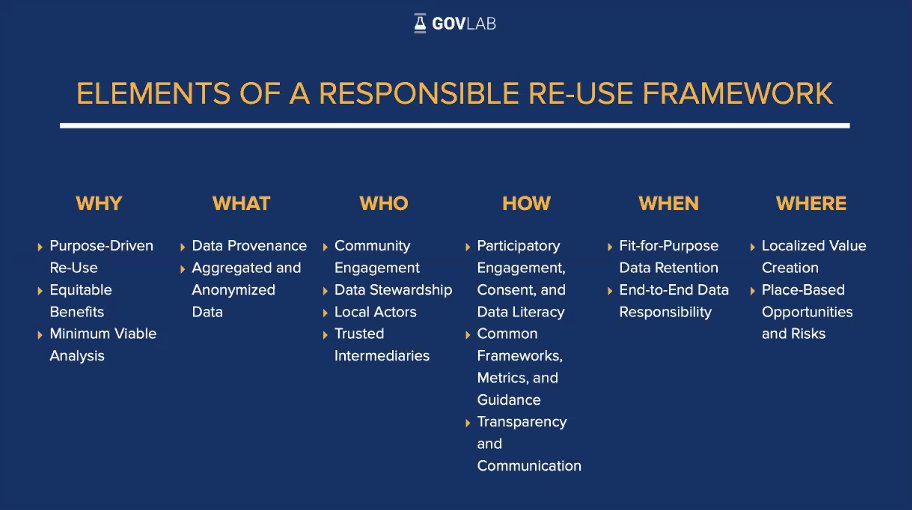
1. Match Urgency w/ Accountability: Participants were comfortable with reuse so long as there was oversight;
2. Expand Data Literacy: Use should be clear, justified, and broadly understandable;
3. Center Equity: Ensure benefits distributed to those who need them most;
2. Expand Data Literacy: Use should be clear, justified, and broadly understandable;
3. Center Equity: Ensure benefits distributed to those who need them most;
4. Engage Legitimate, Local Actors: Ensure the reuse of data is consistent with local interests;
5. Develop Positions for Responsible Data Re-Use: Ensure there are people in organizations in organizations who can lead and coordinate sharing efforts;
5. Develop Positions for Responsible Data Re-Use: Ensure there are people in organizations in organizations who can lead and coordinate sharing efforts;
Stefaan now invites panelists to reflect on the recommendations, their point of view on the kinds of value that #data reuse can provide amid the #COVID19 pandemic, and the risks data reuse poses.. Members of the expert panel can be found below: 

@MarikoSilver: "There is not enough public conversation about data use and reuse. [...] The kind of trust building that's required to make data really useful requires us to be engaged in conversations with communities, across communities. We don't have good structures for that."
"The tendency [for orgs] is to just suck up the data and see what you should do with it later. [...] One of the things that's important to anchor ourselves in is a broadly held view among what the American public [wants]. We want clear, accessible, and ongoing conversations."
@MarikoSilver goes on to note, "one thing that did jump out at me is open data so people can engage in adjusting their own behavior."
The more data we can put in people's hands to help them make decisions, the better.
The more data we can put in people's hands to help them make decisions, the better.
@galeabrewer begins by saying "there are many data challenges that are not being addressed. It's all about the students, the schools and the devices."
"We always hear about the challenges about the pandemic, but the lack of data is one of them."
"We always hear about the challenges about the pandemic, but the lack of data is one of them."
She goes on to describe the challenges facing small businesses in Manhattan and how data can support public action to support them. After there was a large increase in storefront vacancies, the City Council passed a bill mandating the reporting of data on this issue.
"If we don't have the data, we don't know if something makes sense or doesn't make sense. [...] Data can really, really help us plan."
Open data, she argues, help the community understand what's going on in their area and helps city agencies understand what other city agencies are doing.
She further notes, "You need to break it down for people to understand it."
She further notes, "You need to break it down for people to understand it."
@NickESmithNYC: "What COVID exposed was a very long-standing system where people of color haven't been receiving the healthcare and wider ranging resources that we need to be healthy. [...] Data about [the impact of COVID on PoCs] is important."
@NickESmithNYC: "We may be going into a second wave, so the question is how do we respond. How do we avoid the devastation we saw before?"
He calls for data to "give us a picture of what's happening so we're not reactive but proactive & figure out where we anticipate hot spots."
He calls for data to "give us a picture of what's happening so we're not reactive but proactive & figure out where we anticipate hot spots."
He notes that many people have a lot of questions about apps and platforms used by the city and state for COVID-19 response. People fear their data being given to third parties and other groups.
There's a great opportunity here to protect NYers.
There's a great opportunity here to protect NYers.
Diana Plunkett of @BKLYNlibrary talks about the need for the libraries to engage in civic conversations.
"Each of our branches is very much the center of their communities so having thee types of conversations and making them very hyper-local is what we're interested in."
"Each of our branches is very much the center of their communities so having thee types of conversations and making them very hyper-local is what we're interested in."
Libraries can play a role in ensuring their patrons' privacy is respected and facilitate transparency with regards to government.
"The more people know about [what is being collected], the easier it is for them to decide whether to opt in or not."
"The more people know about [what is being collected], the easier it is for them to decide whether to opt in or not."
Kathleen Riegelhaupt of @nypl explains its participation in the project as being motivated by awareness of the opportunities and risks of digital transformation.
NYPL prioritizes privacy, accessibility, equity, impartiality, and transparency.
NYPL prioritizes privacy, accessibility, equity, impartiality, and transparency.
While not endorsing the framework, she notes that it matches and coincides with many of these interests. She also notes the importance of participatory conversations and broad citizen engagement.
Paul Ko of @LinkedIn's Economic Graph describes how #COVID19 has rapidly accelerated data sharing.
He says his org is going as quickly as it can and as carefully as it can, but in sharing data, there are issues that it faces and is trying to navigate.
He says his org is going as quickly as it can and as carefully as it can, but in sharing data, there are issues that it faces and is trying to navigate.
"For us, because we're working so rapidly, a lot of these things can go overlooked. And I think that's the crux of the problem."
He describes the need to continually evaluate, continually ensure orgs are engaging in public dialogue around data reuse.
He describes the need to continually evaluate, continually ensure orgs are engaging in public dialogue around data reuse.
An opportunity beyond the immediate health is helping to address the long-term economic concerns resulting from the pandemic
He notes his org's data shows significant adaptability but there's a great disparity in this capacity and it can only go so far, especially for small bus.
He notes his org's data shows significant adaptability but there's a great disparity in this capacity and it can only go so far, especially for small bus.
Ko further describes the need to balance the need to act with the need to protect privacy. If we want to prevent all potential for abuse, data reuse is likely not possible.
@jacsamsaw : "Early, we were quickly trying to understand how this [pandemic] was affecting our community and [...] how we could mitigate danger and risk."
She talks about what works for her org & community to city level might not be the perfect solution. It was built to context
She talks about what works for her org & community to city level might not be the perfect solution. It was built to context
"This really helps us to build new novel partnerships and collaborations. [...] Rarely do orgs have the knowledge or expertise to carry out their ideas alone, so how we share information might be the best way to prepare us to reopen NYC."
@jacsamsaw One of the big risks that we might encounter is this loss of context and nuance when we reuse data outside the context it was collected in."
She notes a risk of missing important features. It is important to embrace a bottom-up approach to work, using wisdom in comms.
She notes a risk of missing important features. It is important to embrace a bottom-up approach to work, using wisdom in comms.
@ZacharyFeder: "Data reuse and responsible data reuse is fundamental to all our work."
He says that much of what emerged from the mini-publics reflects NYC Open Data's values.
He says that much of what emerged from the mini-publics reflects NYC Open Data's values.
Much of what has been produced by NYC Open Data has been used by far more orgs and people than initially anticipated.
He talks about the Recovery Data Partnership, which seeks to ingest info from orgs across the city to help others make better decisions
He talks about the Recovery Data Partnership, which seeks to ingest info from orgs across the city to help others make better decisions
@ZacharyFeder:says it was really heartening that many of the principles described in the Data Assembly's work match those principles in NYC's Recovery Data Partnership
Many of the panelists discussed the recs from the framework. These recommendations again are:
* Match Urgency & Accountability
* Support & Expand Data Literacy
* Center Equity
* Engage Local Actors
* Develop Positions to Manage Re-Use
* Match Urgency & Accountability
* Support & Expand Data Literacy
* Center Equity
* Engage Local Actors
* Develop Positions to Manage Re-Use

The panelists are now answering questions. The first asks about how leaders should deal with contentious issues where there is not unified public sentiment.
Nick Smith describes the need to engage with local stakeholders and to seek out diverse voices to understand all concerns.
Nick Smith describes the need to engage with local stakeholders and to seek out diverse voices to understand all concerns.
And that's a wrap! Thanks for all those who tuned in. We'll share the final report and a recording of the panel when it becomes available.
• • •
Missing some Tweet in this thread? You can try to
force a refresh

